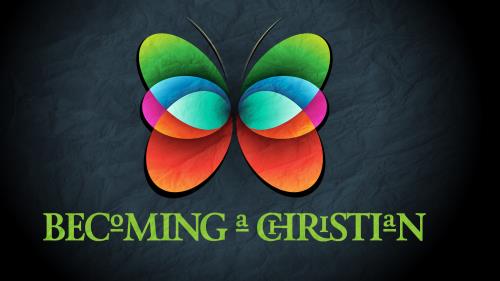-
The Saddest Word
Contributed by Scott Carroll on Nov 28, 2017 (message contributor)
Summary: TELLS US HOW TO OVERCOME THE REPROACH OF SIN
The Saddest Word
TEXT:
Genesis 4:7
“Sin Croucheth at the door”
What is the saddest word in the Bible and in human speech? Some thought that it was death; others, Hell; others, Depart; and many voted for Lost.
But what is the saddest word? What is the word that is the fountain of woe, the mother of sorrows, as universal as human nature, as eternal as human history?
What is the word that is the cause of all war and violence and hatred and sorrow and pain? What is the word that is man’s worst enemy?
What is the word that nailed the JESUS to the Cross? That word is sin. “Sin Croucheth at the door”—Genesis 4:7
And there, ever since, with its sorrow and its woe, sin has been crouching at humanity’s door, and will continue to crouch.
This is not the first appearance of sin, but the first mention of sin, and the first appearance of the final fruit of sin.
“When lust hath conceived it bringeth forth sin, and sin when it is finished bringeth forth death.”
Here, then, you have death, the first murder, the first death of man, as the finished work of sin.
This is the beginning of the long, sad chapter of sin, a chapter which comes to a close only with the last chapter of the Bible, when there shall be no more curse and no more sin.
All the sorrow, all the woe, all the bitterness and violence and heartache and shame and tragedy between man’s creation and fall and his final redemption and restoration to the image of God is summed up in that one word, SIN.
Lost is, indeed, a sad word; so sad that only Christ who came to seek and to save the lost would seem to have the right to pronounce it.
But through what are men Lost? Lost through their sin. Lost to themselves, and lost to God.
They are lost through sin, and when we deal not with effects but with causes there is no doubt that sin is the saddest word.
I want to show the sadness of sin, not by abstract argument or reasoning, but by illustration in the lives of men, by an appearance of what sin did in the lives of men whose history is related in the Bible.
The Bible is the perfect and eternal mirror of the human heart, and you can be sure that what sin did in the lives of men in the Bible it is doing in the lives of men today.
What was true of man in Eden is true of man in Hollywood, and what was true of man in Jericho and Jerusalem is true of man in Fort Worth Texas.
II. Cain and the Sadness of Sin in Personal and Family Life
There was something wrong with Cain before he brought his offering. God’s displeasure and rejection of Cain’s offering, and His acceptance of the offering of Abel, was not because of what Cain brought, the firstlings of the field, or what Abel brought, the first fruits of his flocks.
The trouble was in the heart of Cain. God said to him, warning him, “If thou doest evil, sin croucheth at the door.”
This sin in the heart of Cain was quickly followed, for sin multiplies rapidly, by the sin of mankind sin painted man’s face with the dark colors of hatred and jealousy.
Hate lifted its hand and the first murder was committed, and the blood of Abel cried for vengeance from the ground, stained for the first time, but not for the last, with the blood of man.
Here, at the very beginning of man’s history, we have a powerful demonstration of the sorrow and havoc of sin in personal and family relationships.
This was a brother who slew his brother. Life has its struggles and hardships and trials, but where love and loyalty light the way all things can be endured.
The real bitterness and sadness are in the sins of personal and family relationships. This is the real burden and load of life.
III. Saul and the Sadness of Sin in a gifted life
There is always something likable and appealing in Saul. He draws you like a magnet across the ages.
In many respects he was a great man, head and shoulders over all Israel, not only in stature, but in moral qualities such as courage, patriotism, humility, and sincere affection.
His choice for the first king of Israel seems well justified.
The pride and disobedience, reliance upon himself instead of upon God, show in his life, and when he has been rejected and another chosen in his place, then jealousy begins to rage in his heart.
We find him seeking to kill his son whom he loved, and David his best friend, who had charmed away the evil spirit that had vexed Saul.

 Sermon Central
Sermon Central



